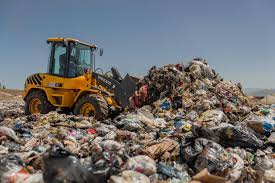Environmental management tips for reducing waste involve adopting practices to minimize the generation of unnecessary and harmful waste. This includes practices such as recycling, composting organic materials, and choosing products with minimal packaging.
By embracing the “reduce, reuse, recycle” mantra, individuals and businesses can contribute to the efficient use of resources, decrease the burden on landfills, and promote a more sustainable and environmentally friendly approach to waste management. Here are some practical tips to help you contribute to waste reduction in your daily life;
1. Composting Matters: Start a compost bin for organic waste like food scraps and yard trimmings. Composting reduces landfill waste and produces nutrient-rich soil.
2. Say No to Single-Use Plastics: Avoid single-use plastics such as straws, utensils, and bags. Opt for reusable alternatives made from materials like stainless steel or glass.
3. Mindful Packaging Choices: Support products with eco-friendly packaging. Choose items with minimal or recyclable packaging, and consider buying in bulk to reduce overall packaging waste.
4. Repair and Donate: Instead of discarding broken items, consider repairing them. Donate or sell items that are still usable but no longer needed. Extend the lifespan of products.
5. Sustainable Shopping Habits: Prioritize products from companies committed to sustainable practices. Look for eco-friendly certifications and labels.
6. Educate and Advocate: Spread awareness about waste reduction in your community. Encourage friends and family to adopt eco-friendly habits. Support and advocate for policies that promote responsible waste management.
7. Responsible Disposal: Dispose of hazardous materials properly. Research local disposal facilities for items like electronics and chemicals, ensuring they are handled in an environmentally friendly way.
8. Opt for Digital Alternatives: Reduce paper waste by opting for digital documents and communications. Use online platforms for bills, subscriptions, and other services.
9. Conscious Consumerism: Be mindful of your purchasing decisions. Consider the lifespan and environmental impact of products before making a choice.
By incorporating these tips into your daily routine, you contribute to a healthier environment and play a vital role in sustainable waste management. Remember, small actions collectively make a significant impact on our planet.
Read Also: Institutional Arrangement for Pollution Control
The Importance of Environmental Management Tips for Reducing Waste

Environmental management refers to the careful and responsible use of our surroundings and resources. It involves making choices that help protect the environment and ensure its well-being. One crucial aspect of environmental management is the reduction of waste, where we work towards creating less garbage and managing it wisely. Here are the importance of environmental management tips for reducing waste;
1. Preserving Natural Resources: When we reduce waste, we use fewer raw materials. This helps in preserving our natural resources like forests, minerals, and water, ensuring they remain available for future generations.
2. Mitigating Pollution: Waste, especially plastic and non-biodegradable materials, can lead to pollution. Proper waste management prevents these pollutants from harming our air, water, and soil, safeguarding the health of both the environment and living organisms.
3. Energy Conservation: Manufacturing products and managing waste require energy. By reducing waste, we indirectly conserve energy, contributing to a more sustainable and eco-friendly use of resources.
4. Protecting Wildlife: Improperly disposed waste can harm wildlife. Animals might ingest or get entangled in plastics and other waste materials. By managing waste responsibly, we create safer environments for animals and help protect biodiversity.
5. Economic Benefits: Efficient waste management systems can lead to economic benefits. Recycling and reusing materials reduce the need for constant production, lowering costs and creating job opportunities in recycling industries.
6. Climate Change Mitigation: Some waste disposal methods, like incineration, release harmful greenhouse gasses. By adopting waste reduction practices, we contribute to mitigating climate change and its adverse effects.
7. Community Health Improvement: Proper waste management prevents the spread of diseases through contaminated water and air. By reducing waste, we promote a healthier living environment for communities.
8. Long-term Sustainability: Sustainable practices, including waste reduction, ensure the long-term health and stability of our ecosystems. This is vital for the well-being of the planet and the people who inhabit it.
9. Educational and Behavioral Impact: Embracing waste reduction practices educates individuals and communities about the importance of responsible environmental management. This knowledge can lead to broader societal changes and a collective commitment to sustainability.
10. Global Responsibility: Waste management is a global concern. By actively participating in waste reduction, individuals and communities contribute to global efforts to address environmental challenges and promote a healthier planet for everyone.
The importance of environmental management tips for reducing waste goes beyond just cleaning up our immediate surroundings. It is a collective effort to protect the Earth, conserve resources, and ensure a sustainable and harmonious coexistence with the environment. Every small action towards waste reduction adds up to significant positive changes for our planet
Challenges of Environmental Management Tips for Reducing Waste

While the goal of reducing waste is essential for a healthier planet, there are challenges that can make this journey a bit tricky. Understanding these challenges helps us find effective solutions. Here are some common hurdles in the path of waste reduction;
1. Single-Use Culture: Our society has become accustomed to the convenience of single-use items. Breaking this culture and promoting reusable alternatives can be challenging, as it requires a shift in mindset and habits.
2. Lack of Awareness: Many people may not be fully aware of the environmental impact of their waste. Education and awareness campaigns are crucial to inform individuals about the consequences of excessive waste and the benefits of waste reduction.
3. Limited Infrastructure: In some areas, there may be limited or inadequate waste management infrastructure. This makes it difficult for individuals to dispose of waste properly and for communities to implement effective recycling programs.
4. Economic Considerations: Implementing sustainable practices sometimes involves higher upfront costs. Businesses and individuals may hesitate to invest in eco-friendly alternatives due to financial concerns. Finding cost-effective solutions is crucial for widespread adoption.
5. Fast-Paced Consumerism: The rapid turnover of products in the market encourages a throwaway culture. Constant product releases and updates make it challenging for consumers to resist the allure of new items, contributing to increased waste.
6. Packaging Challenges: Excessive and non-recyclable packaging remains a significant challenge. Manufacturers often use materials that are convenient but not environmentally friendly. Finding sustainable packaging solutions requires innovation and industry-wide collaboration.
7. Inadequate Regulations: The absence of or lax environmental regulations can hinder waste reduction efforts. Strong policies and regulations are necessary to enforce responsible waste management practices at both individual and corporate levels.
8. Technological Barriers: Certain types of waste, such as electronic waste (e-waste), pose unique challenges due to the complexity of recycling processes. Technological advancements and better recycling methods are needed to address these specific challenges.
9. Global Supply Chains: Products often have complex supply chains that span the globe. Coordinating waste reduction efforts on an international scale can be challenging, as different regions may have varying regulations and practices.
10. Resistance to Change: People are naturally resistant to change. Convincing individuals and businesses to adopt new, more sustainable habits can be met with resistance. Overcoming this inertia requires effective communication and incentives.
Despite these challenges, it is important to recognize that progress is possible. Addressing each of these hurdles involves a combination of education, policy changes, technological innovation, and collective effort. By acknowledging and actively working to overcome these challenges, we can move towards a more sustainable and waste-conscious future.
Read Also: Guide to Environmental Management Tips for Conserving Water
Strategies to Minimize Environmental Management Tips for Reducing Waste

Waste Reduction at the Source involves adopting smart practices to create less waste right from the beginning. Here are some simple strategies:
1. Conscious Consumption: Be mindful of what you buy. Before making a purchase, think about whether you really need it. Avoid impulse buying, and choose products with less packaging or those that use eco-friendly materials.
2. Product Design Improvements: Encourage product designers to create items that are durable, repairable, and have a longer lifespan. This means fewer things ending up in the trash and less need for constant replacements.
3. Sustainable Packaging: Support products with eco-friendly packaging. Look for items that use minimal packaging, or packaging that can be easily recycled or composted. This reduces the amount of waste going into landfills.
4. Repair Instead of Replace: When something breaks, consider repairing it instead of automatically replacing it. This not only saves money but also reduces the disposal of functional but slightly damaged items.
5. Choose Refillable Products: Opt for products that offer refill options. This reduces the need for single-use packaging and promotes a more sustainable way of consuming goods.
6. Educate Others: Share your knowledge about waste reduction with friends and family. Encourage them to adopt similar practices, creating a positive ripple effect in your community.
7. Reuse and Repurpose: Give items a second chance. Instead of throwing them away, find creative ways to reuse or repurpose them. This simple act extends the life of products.
By being thoughtful about what you buy, supporting products with better designs, and choosing sustainable packaging, you play a crucial role in minimizing waste at its source. It’s a small step that collectively makes a big difference for our environment.

